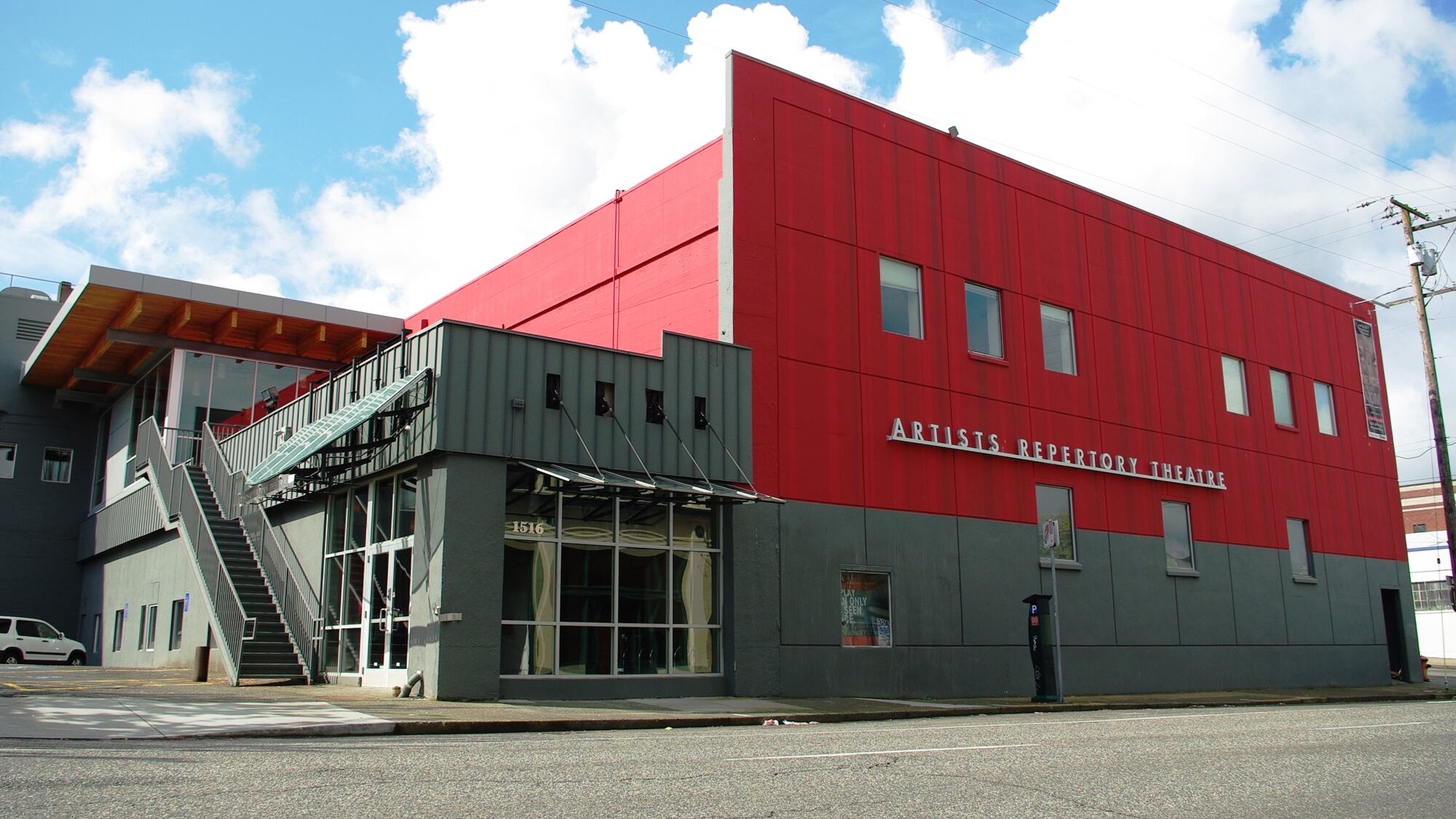One of Portland's most prominent arts organizations is in financial trouble. And its struggles could change the landscape of the city's West End.
Property and tax records show Artists Repertory Theatre, Portland's oldest professional theater company, is about to bail itself out with the sale of half the full city block it owns in Goose Hollow.
The 36-year-old nonprofit stretched mightily in 2004, paying $4.88 million for the property, which is located between Southwest Alder and Morrison streets and 15th and 16th Avenues. Now the land may provide the company a much-needed life raft.
The good news for theatergoers is that the transaction ART proposes should not affect future productions. The theater will stay where it is, though it may soon abut a 218-foot residential tower with 296 units and 206 parking spaces beneath ground-floor retail.
The city of Portland is currently considering preliminary plans proposed by the would-be purchaser, Atlanta-based Wood Partners. The project, along with a separate proposal to redevelop the nearby site formerly occupied by The Oregonian's printing press, would change the face of Goose Hollow, a Southwest neighborhood left largely untouched by the fast-paced redevelopment of much of downtown.
Mike Barr, chairman of ART's board of trustees, says board members made a prescient decision when they bought the land 15 years ago.
"It's been kind of struggle to make the mortgage payments," he says, "but the equity we've built has been very positive."
ART has earned a reputation regionally and nationally for its ambition and creativity. Along with its larger peer, Portland Center Stage, the company is an anchor of the city's theater scene.
Records show, however, that ART, which has an annual budget of $3.8 million, has struggled recently. It lost money each of the past four years, for a total of $1.3 million in red ink.
Barr notes that other nonprofits, including the Oregon Symphony and the Oregon Ballet Theatre, which sold its Southeast Portland headquarters to a developer, have also faced lean years at the box office and a very competitive fundraising environment.
But ART's situation grew sufficiently dire last year that the Internal Revenue Service filed a lien against it Nov. 20 for $309,000 in unpaid payroll taxes. Even for struggling arts organizations, a lien of that size is unusual.
When the lien was filed, ART had just inked a deal to sell half its property to Wood Partners. Terms of that sale, Barr says, are confidential, pending city approval of the proposed residential tower. (The organization has already taken steps to refinance existing debt on its property to pay the tax lien.)
Barr says the sale would greatly strengthen ART's finances. "Almost all arts organizations in the city have been under pressure," he says. "We looked at ways to get more out of the building. One option was to sell and move, but that would just create another problem. Then this opportunity came in to develop half the block and fix the place up and pay some debt off."
Wood Partners, according to the company's website, has developed 53,000 housing units across the country, including the recently completed 281-unit Block 17 in the Pearl District.
The company declined to disclose the proposed price of the ART deal but hopes to break ground in late 2018.
"While we are still in preliminary phases of this specific project, Wood Partners is committed to bringing distinctive housing development while preserving and enhancing the culture and communities where we grow," said Michael Nagy, Wood Partners' VP of development for the Pacific Northwest, in a statement.
The proposed Wood Partners development would be subject to a new inclusionary zoning policy the City Council approved in 2016. That policy requires new projects larger than 20 units to set aside a percentage of units for low-income housing.
So one consequence of ART's financial issues could be more affordable apartments near downtown.
"This deal sounds like a win-win," says Michael Andersen of the housing advocacy group Portland for Everyone. "It's great to see the city's inclusionary zoning policy paying off."

